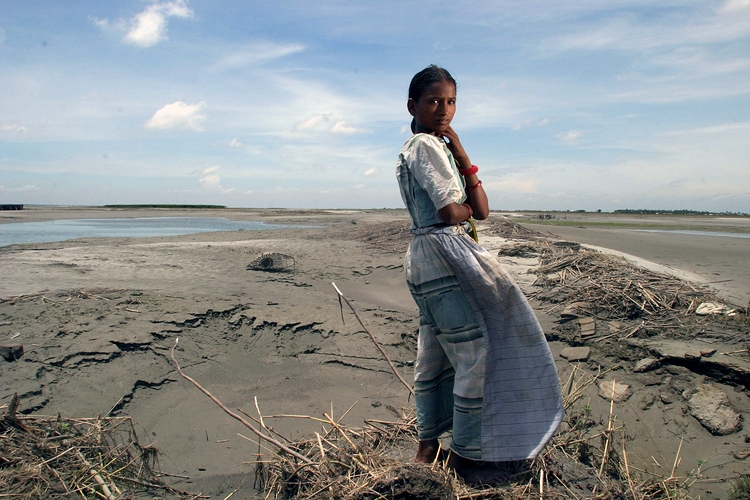At Real Life, Anna Reser and Leila McNeill argue that geoengineering and other planetary-scale approaches to combatting climate change ignore the particular and differential ways that the phenomenon affects various populations, especially women. As they write, “When we plan for action on the scale of the planetary, we enact what Donna Haraway has called the ‘god trick’—we become the eye that fucks the world.” Instead, Reser and McNeill suggest that if we accept that women bear the brunt of climate change—as numerous studies have borne out—then solutions to climate change should be developed from their particular perspective. Here’s an excerpt from the piece:
The infinitely varied and finely grained climate itself is just as patchwork, just as cacophonous, and it is in constant interaction, reaction and adaptation, with the people and societies on the surface of the earth. The variables are innumerable. But many proposals for combating climate change include planet-wide schemes like geo-engineering, which involves human manipulation of the atmosphere. These proposals, while speculative, are extremely attractive solutions that embody a heroic impulse to tame an unstoppable nature with the promise of modern technology. To the observer freely poised in space, his eye ready to fuck the world, inject the seas with iron or stuff the clouds with sulfur, none of the cacophony is visible. None of its complexity, contingency, none of the knowledges that are local and specific and made from dirt and salt and fiber and cane are apparent to the eye. Only the blue marble is visible, the container for the world …
Feminist approaches to climate change insist that we ground solutions in the particular, not in the domination of the universal and the fiction of the objective. To move beyond simple recognition of women’s vulnerability to climate change, the research and methods used to formulate solutions to climate change effects must begin from marginal lives, with an understanding of gender inequality. While neither the consensus nor the sufficient evidence exist to implement something as large-scale as geoengineering, there is evidence to support such feminist solutions.
Image via politheor.net.
